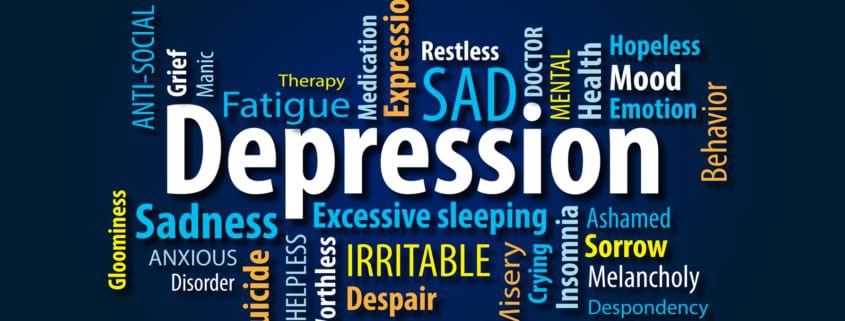The Vicious Cycle of Poor Sleep, Depression and Chronic Pain
Overcome the Cycle of Poor Sleep, Depression and Chronic Pain
The recommended amount of sleep is seven hours. Sleeping less, or more, affects us both physically and mentally. Breaking the resulting cycle of poor sleep, depression and chronic pain can be difficult.
Many people have trouble getting to and staying asleep. Sleep deprivation, where you aren’t getting enough sleep or are dealing with insomnia regularly, can result in depression and/or chronic pain. Existing depression or chronic pain can cause poor sleep.
If a person is anxious this can overstimulate the nervous system; adrenaline itself can make it difficult to sleep. It can also increase pain for those who suffer from chronic pain. Sustained anxiety and lack of sleep together lead to depression.
How to Break the Cycle
There are steps you can take to help avoid poor sleep.
1. Practice good sleep habits
Also known as sleep hygiene, sleep habits can help establish a regular sleep schedule. For example, you may have depression issues that cause you to stay in bed too long. Even once the depression is treated successfully, you may have a difficult time breaking the sleep habit that the depression established.
For proper sleep hygiene you can:
- Keep daytime napping to no more than 30 minutes.
- Skip alcohol, caffeine and nicotine when it’s close to bedtime.
- Put the electronic screens, such as smartphones and tablets, aside at least 30 minutes before you go to bed.
- Create a relaxing bedtime routine, such as enjoying a soothing hot bath or reading a magazine or book.
- It’s best to purposefully avoid laptops, eating or TV in bed. Using your bedroom for sleep only is a very effective, good sleep habit.
2. Write it down, then tear it up
One technique used to induce sleep is to write down your thoughts and feelings, then immediately tear them up. This can calm racing thoughts, which calms the nervous system.
Health experts say that you can thus provide the brain with a chance to establish neurological pathways that will let you deal with depression or pain in a healthier way.
3. Seek therapy
It helps to meet with a therapist regularly when you have issues with depression and/or chronic pain. Your therapist can lead you to identify and then replace thoughts and behaviors affecting your well-being. It has been found that cognitive behavioral therapy (CBT) can be useful in resolving poor sleep habits and disorders, depression and chronic pain.
Work with a Therapist or Medical Professional
As you confront your issues with poor sleep, depression and pain, turn to a sleep therapist or medical professional, or both. They may recommend additional aide, such as anti-anxiety and depression medications and other possible solutions. If you need health insurance information, remember go to EINSURANCE.com.

 EINSURANCE
EINSURANCE EINSURANCE
EINSURANCE EINSURANCE
EINSURANCE